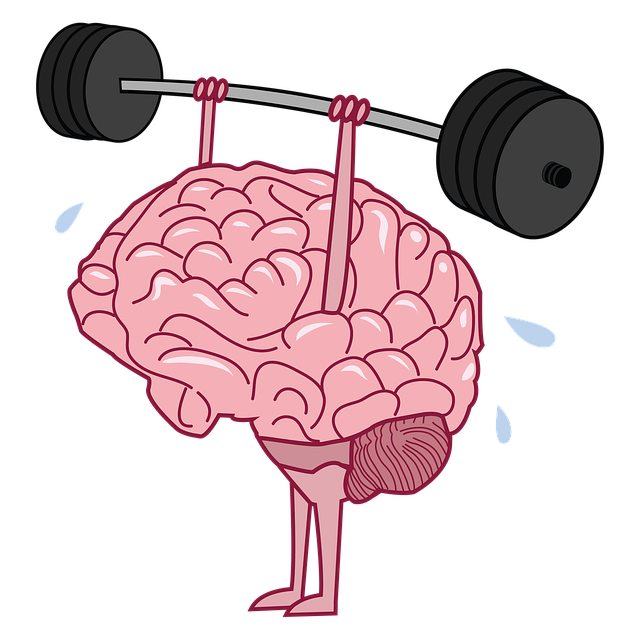Parker Hebrew Speaking Therapy (PHST) offers specialized social skills training tailored for individuals with mental health conditions, addressing the link between social isolation and exacerbated symptoms like anxiety, depression, or ASD. Their unique approach combines speaking therapy with cultural sensitivity in a supportive environment, focusing on active listening, non-verbal communication, conflict resolution, and stress management. PHST adapts its strategies based on diagnosis, empowering clients with confidence-building exercises for anxiety, inner strength development for depression/trauma, and mindfulness practices. Integrating social skills training into treatment plans enhances recovery outcomes, supported by evidence-based practices, personalized journaling exercises, and advocacy for mental health policy recognition.
Social skills training is a powerful tool in supporting individuals with mental health conditions. This article explores the intricate link between social interactions and mental wellness, highlighting how deficiencies in social skills can exacerbate existing challenges. We delve into the therapeutic approach of Parker Hebrew Speaking Therapy, showcasing its effectiveness in enhancing communication and relationships. Key areas of focus are outlined for various conditions, offering practical strategies for integrating social skills training into comprehensive treatment plans.
- Understanding the Link Between Social Skills and Mental Health
- The Role of Parker Hebrew Speaking Therapy in Improving Social Interactions
- Key Areas Targeted in Social Skills Training for Different Conditions
- Strategies for Integrating Social Skills Training into Treatment Plans
Understanding the Link Between Social Skills and Mental Health

Social skills training plays a pivotal role in addressing mental health conditions, as there’s a profound connection between an individual’s ability to interact socially and their overall well-being. Parker Hebrew Speaking Therapy recognizes this link and offers specialized programs tailored to enhance social interactions while promoting mental Health Awareness. By focusing on emotional healing processes, these therapies aim to boost self-esteem improvement, which is often at the core of many mental health challenges.
Understanding that social isolation can exacerbate conditions like anxiety, depression, or autism spectrum disorder (ASD), Parker Hebrew Speaking Therapy’s approach encourages clients to develop essential communication and relationship-building skills. Through targeted exercises and supportive environments, individuals learn to navigate social situations with confidence, fostering a sense of belonging and improving their emotional healing processes. This holistic strategy not only complements traditional therapy but also empowers individuals to thrive in their personal and professional lives, contributing to a more positive Mental Health Awareness.
The Role of Parker Hebrew Speaking Therapy in Improving Social Interactions

The Parker Hebrew Speaking Therapy (PHST) offers a unique and effective approach to enhancing social interactions for individuals with mental health conditions. This therapeutic method recognizes the power of language and communication in shaping one’s social abilities and overall well-being. By combining elements of speaking therapy with cultural sensitivity, PHST creates a supportive environment where clients can practice and improve their social skills in Hebrew. This specialized therapy is particularly beneficial for those who struggle with anxiety or depression, as it provides a safe space to engage in conversations, build relationships, and develop coping strategies in a language they are comfortable with.
The organization focuses on various aspects of social skills training, including active listening, non-verbal communication, and conflict resolution. Through structured activities and group discussions, participants learn to navigate social situations more confidently. PHST also incorporates stress management workshops within their program, equipping individuals with valuable tools to cope with everyday stressors and emotional challenges. This holistic approach, combined with the comfort of speaking in Hebrew, empowers clients to enhance their mental health awareness and develop lasting coping skills.
Key Areas Targeted in Social Skills Training for Different Conditions

Social Skills Training for mental health conditions often focuses on several key areas tailored to specific needs and diagnoses. For individuals dealing with anxiety disorders, Parker Hebrew Speaking Therapy emphasizes building confidence in social interactions through gradual exposure exercises, helping them navigate various social settings with ease. This approach fosters a sense of security and encourages proactive engagement.
When targeting conditions like depression or trauma, the training shifts towards developing inner strength and cultivating mindfulness meditation practices. Self-awareness exercises play a crucial role here, enabling individuals to recognize triggers and manage emotional responses effectively. By integrating these techniques, social skills training becomes a holistic process that empowers individuals to connect with others authentically while nurturing their mental well-being, much like Parker Hebrew Speaking Therapy does for its clients.
Strategies for Integrating Social Skills Training into Treatment Plans

Integrating social skills training into treatment plans is a multifaceted approach that can significantly enhance recovery outcomes for individuals with mental health conditions. At Parker Hebrew Speaking Therapy, we recognize that effective communication and social interaction are vital components of overall well-being. Our strategies focus on tailoring the training to meet individual needs, ensuring that each session is engaging and relevant. This personalized approach not only fosters a sense of belonging but also equips clients with practical tools for navigating social situations with confidence.
By incorporating techniques from evidence-based practices like those found in Burnout Prevention Strategies for Healthcare Providers, we promote mental wellness both inside and outside the therapeutic setting. Additionally, encouraging Mental Wellness Journaling Exercises can reinforce learning between sessions, allowing individuals to reflect on their progress and identify areas that require further attention. Beyond therapy, advocacy through Mental Health Policy Analysis and Advocacy ensures a supportive environment where social skills training is recognized as an essential component of comprehensive mental health care.
Social skills training, as demonstrated by the effective approaches of Parker Hebrew Speaking Therapy, plays a pivotal role in managing mental health conditions. By targeting specific areas like communication, empathy, and group dynamics, this therapy enhances social interactions and promotes better mental well-being. Integrating such training into treatment plans can significantly improve patients’ quality of life, enabling them to navigate social environments with more confidence and ease.










